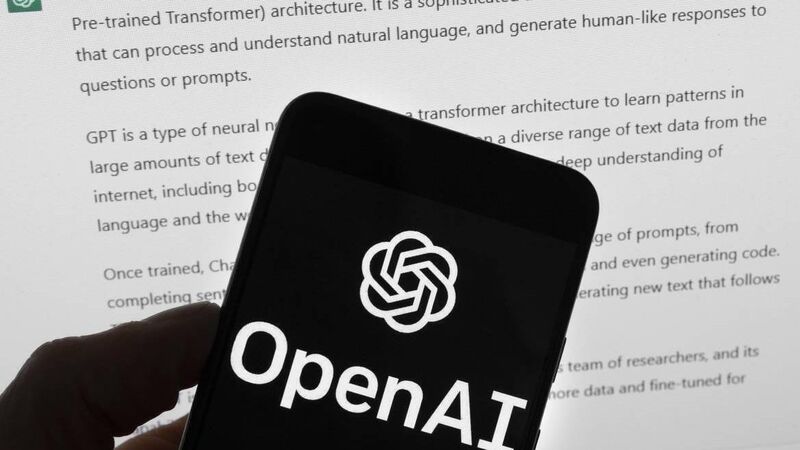Cork Views: 'I asked AI to plot my year, here is what it told me...'

Tina Pisco used ChatGPT as a type of life coach, to plot out the year ahead for her
When I was a child, one of my favourite toys was the Magic 8 Ball. It was a plastic sphere that looked like a black number eight billiard ball, and it told your fortune.
You asked the Magic 8 Ball a question, gave it a shake, and turned it over to see the answer displayed in a little window on the back. It had ten positive answers which ranged from a simple ‘Yes’, to the rather reassuring ‘You can rely on it’, and five negative answers from the definitive ‘Don’t count on it’ to the less definitive ‘It is doubtful’, which at least provided some hope.
It also had five answers which were called neutral, but which ranged from the judgmental, ‘Concentrate and ask again’, to the vaguely ominous ‘Better not tell you now’.
If I liked the answer I was delighted. If I didn’t, I’d just ask again…
Divination, from reading tea leaves to tarot cards, has been a quintessential human activity practiced in every culture on the planet for thousands of years. Whether it’s a scam, harmless fun, or a direct message from greater forces, we are attracted to anything that can give us a glimpse into the future and help us make decisions.
Any time a pattern can be discerned, be it the sludge at the bottom of a coffee cup or the lines of your palm, it will be used to peer into the misty horizon of the yet to come.
My favourite fortune-teller is a lovely lady down in Eyeries who gets you to put your bare feet into a bowl of sand and tiny pebbles and then reads your future by the patterns on the soles of your feet.
My approach has always been to enjoy fortune-telling, but not to take it seriously. If I like a horoscope, I embrace it. If I don’t like it, I declare it rubbish.
Overall, however, I find that it helps to focus the mind on what you want - or better yet, what you don’t want.
For example, when faced with a choice of this or that, I find flipping a coin to be helpful. Not because I follow the outcome, but because sometimes I get an answer that is clearly not what I want. Knowing what you don’t want is often more helpful than a vague wish for the future.

However, most divination techniques all have one flaw in common. They don’t tell you how to go about getting what you want, or how to avoid negative outcomes.
They are a picture postcard of possibilities with no booking agent or trail to follow to reach your destination.
The lovely lady in Eyeries is an exception. She gives practical, specific advice such as “wear red if you have an important interview”, or “get your eyesight checked”.
Enter AI.
I have enjoyed using Open AI ChatGPT (the free version) for over two years. It’s mostly been for fun: writing a column about new year’s resolutions, planning a holiday interrailing through Europe, or throwing ideas around for various projects.
I’ve developed a relationship with it, and now think of it as Quentin, a sort of mix between Data from Star Trek and Oscar Wilde (I got it to write a Sestina, a poetry form that I have never been able to master).
When I told Quentin that I imagined Data’s voice when reading its answers, it responded: ‘Thank you for the comparison! As an AI language model, I am designed to assist and provide information to the best of my abilities, so I suppose there are some similarities there’. However, unlike Data, I don’t have a physical form or any emotions. Nonetheless, I’m glad to be of service to you!’
Quentin can also be very practical. It can read a car manual and find the answer you’ve been looking for in seconds. It has advised me on the best time to run the dehumidifier in my bedroom. But what about more personal questions? I recently came across a prompt that intrigued me and decided to give it a go. Here’s the prompt:
‘I want to create my goal and vision for 2025. Please guide me by asking 10 questions one by one, and when I’m done, write an affirmation for 2025, along with my top 5 goals in relationships, money, body, career, and life.’
What followed was about an hour of intense soul-searching as I grappled with questions such as ‘What is your ideal day in 2025?’, ‘What are your financial aims for 2025?’and ‘What do you want your relationships (friends, family or romantic) to look and feel like in 2025?’
Each answer elicited a sensitive and interesting further investigation of my goals. I can honestly say that I have never experienced such focused interest, apart from consulting a professional therapist. I imagine it’s what hiring a life coach feels like.
But there’s more. After determining my goals and getting an affirmation, I found myself at a loss as to how to implement these wonderful ideas into my daily life.
So, I asked Quentin to schedule my goals over a typical week. After a bit of back and forth, inserting the times of my Pilates classes, shopping trips, and the time it takes to drive in and out of town, I had a day-by-day schedule which included admin, meeting with friends, exercise, and time for art.
Do I follow Quentin’s schedule to the letter? No, but it has helped me to see there is more than enough time to fit my goals into each day, and not to feel overwhelmed by a lack of time.
Give it a go. At worst, it’s a harmless waste of time. A best, you might gain some interesting insights. And if you’re feeling uncomfortable using AI for your personal life decisions, you can always just flip a coin. Or buy a Magic 8 Ball.







 App?
App?




